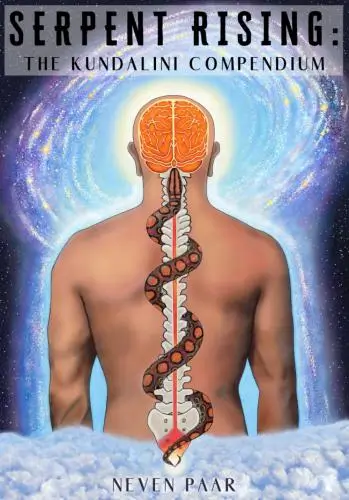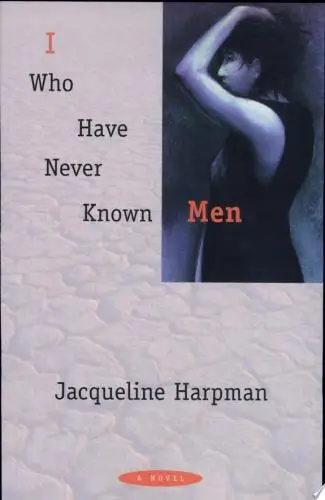I Who Have Never Known Men
A Novel
What's it about?
I Who Have Never Known Men by Jacqueline Harpman invites you into a thought-provoking exploration of isolation and humanity. As you follow the journey of an unnamed woman confined in a bleak environment, you’ll confront profound questions about identity, connection, and freedom. This narrative encourages you to reflect on what it means to truly know others and yourself. The novel’s stark reality prompts you to consider how fear and hope shape our lives, making it an insightful read for anyone contemplating the essence of human existence.
About the Author
Jacqueline Harpman was a Belgian psychiatrist and novelist known for her introspective narratives and exploration of identity, desire, and existential themes. Notable works include "I Who Have Never Known Men" and "Orlanda." Her writing often blends psychological insight with imaginative storytelling, examining the complexities of human relationships and self-discovery.
5 Key Ideas of I Who Have Never Known Men
Embracing the Void
Finding meaning in a world that seems hollow can rejuvenate your spirit and purpose.
Imagine being in a barren landscape with no obvious path forward, much like our character in the book, who must navigate a life stripped of externals and find purpose within.
- Encourages self-reflection: In the absence of societal norms, true self-awareness emerges.
- Draws strength from uncertainty: Embracing ambiguity allows for creative self-discovery.
- Redefines success: Without societal pressures, one reshapes personal goals and satisfaction.
Spend 15 minutes journaling about what gives your life meaning, free from societal expectations.
Avoid fearing emptiness as a negative; instead, view it as a canvas for personal exploration.
Finding Resilience in Vulnerability
Embracing vulnerability leads to internal strength and deeper human connections.
Think of a fragile glass tower; it seems delicate but supports the structure around it. Our character, inherently vulnerable, learns strength and reliance are birthed from accepting this nature.
- Fosters genuine connections: Sharing vulnerability builds authentic relationships.
- Enhances personal growth: Vulnerability invites introspection and deeper self-understanding.
- Strengthens resilience: Accepting vulnerability fortifies against future hardships.
Open up to someone about a personal fear or insecurity to deepen your relationship.
Beware of oversharing; vulnerabilities should be shared with a trustworthy audience to foster genuine connection.
Solitude as Self-Discovery
Solitude is not isolation but a chance for profound self-discovery.
Consider solitude like a blank canvas, offering endless opportunity. It becomes transformative when our protagonist learns to paint her own life free from societal brushstrokes.
- Invites introspection: Solitude encourages understanding of one’s true desires and emotions.
- Boosts creativity: Free from external influence, creativity flourishes.
- Promotes independence: Understanding of personal needs and boundaries emerges.
Schedule 30 minutes alone without distractions to reflect on your personal values.
Don't confuse solitude with loneliness; solitude is a chosen space for growth, not absence of connection.
Deeper knowledge. Personal growth. Unlocked.
Unlock this book's key ideas and 15M+ more. Learn with quick, impactful summaries.
Read Full SummarySign up and read for free!
I Who Have Never Known Men Summary: Common Questions
“I am the last of my kind.” This haunting declaration from I Who Have Never Known Men by Jacqueline Harpman encapsulates the protagonist's lonely existence in a mysterious underground bunker, where she has spent her life cut off from the outside world. The narrative unfolds as she reflects on her past, the essence of humanity, and her desperate yearning for connection, which is both profound and unsettling.
The book had me hooked with its exploration of identity and isolation. Harpman’s prose is striking — at times, it felt like I was peeling back layers of a complex puzzle. Moments of introspection and deep philosophical questions about gender, the nature of society, and the role of men led me to pause, considering their implications long after I had turned the page. Yet, at times, the abstractness left me feeling somewhat adrift, grappling with the ambiguity of her experiences and the sparse world she inhabited.
Overall, I found it to be a thought-provoking read that stayed with me. If you enjoy books that challenge conventional narratives, like The Handmaid's Tale or The Road, you'll likely appreciate Harpman's unique take on human existence. I highly recommend giving it a try!
Experience Personalized Book Summaries, Today!
Discover a new way to gain knowledge, and save time.
Sign up for our 7-day trial now.
No Credit Card Needed

Similar Books

The Hobbit
J.R.R. Tolkien
Fichte
Johann Gottlieb Fichte
English Spirituality
Gordon Mursell
Serpent Rising: The Kundalini Compendium
Neven Paar
Feeling Is the Secret
Neville Goddard
How to Read the Akashic Records
Linda Howe
Key Approaches to Biblical Ethics
Rabens, Volker
Macbeth
William Shakespeare
Hamlet
Shakespeare
When Crickets Cry
Charles MartinTrending Summaries

Peak
Anders Ericsson
Never Split the Difference
Chris Voss
Smart Brevity
Jim VandeHei
The Psychology of Money
Morgan Housel
The First 90 Days
Michael D. Watkins
Atomic Habits
James Clear
Thinking, Fast and Slow
Daniel Kahneman
The Body Keeps the Score
Bessel van der Kolk M.D.
The Power of Regret
Daniel H. Pink
The Compound Effect
Darren HardyNew Books

Forex Trading QuickStart Guide
Troy Noonan
Comprehensive Casebook of Cognitive Therapy
Frank M. Dattilio
The White Night of St. Petersburg
Michel (Prince of Greece)
Demystifying Climate Models
Andrew Gettelman
The Hobbit
J.R.R. Tolkien
The Decision Book
Mikael Krogerus
The Decision Book: 50 Models for Strategic Thinking
Mikael Krogerus
Fichte
Johann Gottlieb Fichte
Do No Harm
Henry Marsh

